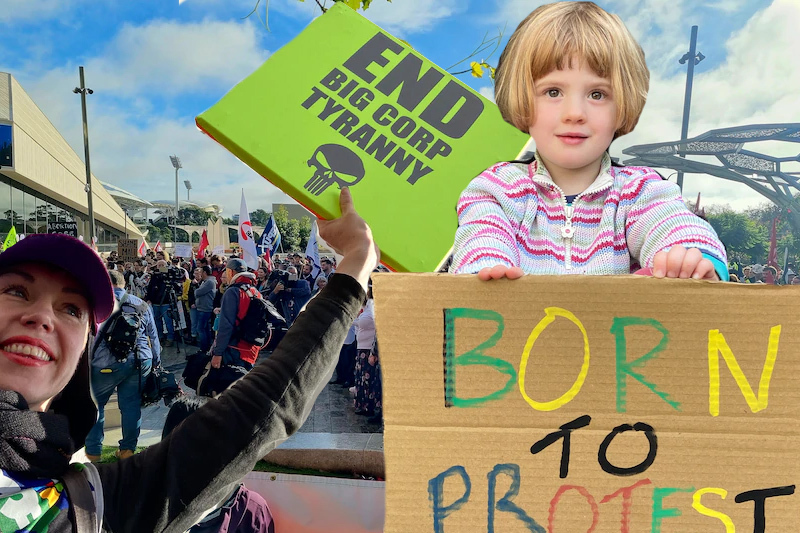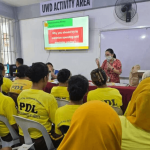
opinion protesters condemn public obstruction penalties in sa as an attack on fundamental rights
The recent gathering of protesters outside the South Australian Parliament, voicing their opposition to the proposed changes in the state’s protest laws, reflects a deep concern for the preservation of fundamental rights.
More Insights about the proposed bill, and public Obstruction Penalties in SA
According to the proposed amendment, the maximum fine or three months in jail would increase from $750 for protesters who “intentionally or recklessly” block people’s access to a public space.
On Tuesday, hundreds of union members from all over South Australia gathered to express their dissatisfaction with the Bill, which is anticipated to enter the final stages of parliamentary consideration this week.”
The controversial Summary Offences (Obstruction of Public Places) Amendment Bill, if enacted, could lead to severe penalties including imprisonment and hefty fines for those found guilty of causing obstructions in public spaces. This development has sparked widespread condemnation from activists, civil society groups, and even current and former Labor MPs.
The rally held at Festival Plaza, adjacent to Parliament House, was a deliberate effort to ensure that the voices of the demonstrators were heard by lawmakers. The crowd, estimated to be around 200 people, passionately chanted slogans like “kill the bill” to convey their strong disapproval. Crossbench MPs from the Greens and SA Best were also present, underscoring the bipartisan concerns over the proposed legislation.
Critics argue that the amendment poses a serious threat to the democratic right to protest peacefully. The broad language of the bill, which targets those who “intentionally or recklessly” obstruct public places, has raised fears of potential misuse and curtailment of freedom of assembly. Demonstrators rightly question whether such penalties are proportionate and necessary, especially when it comes to non-violent acts of civil disobedience aimed at drawing attention to pressing social, political, and environmental issues.
Keep Reading
Various representatives from civil society organizations, unions, and advocacy groups have joined the protesters in expressing their concerns. The South Australian Council of Social Service, Conservation Council SA, and SA Ambulance Employees Association, among others, have voiced their opposition to the bill. Amnesty International SA President Adelaide Xerri noted the diverse range of participants, emphasizing the broad cross-section of community groups united in their cause.
Proponents of the amendment argue that the changes are essential to maintain public safety and prevent disruptive protests similar to those conducted by Extinction Rebellion. However, critics contend that the proposed legislation could have far-reaching consequences beyond addressing specific disruptive incidents. They fear that the ambiguity of the bill’s language could lead to the suppression of legitimate protest activities, including peaceful assemblies and demonstrations that have been vital tools in advocating for human rights and social progress throughout history.
The South Australian Premier, Peter Malinauskas, has defended the proposed amendment, asserting that it does not seek to curtail the right to protest. He maintains that the current Public Assemblies Act 1972 already grants individuals the right to engage in lawful protests, including obstructing streets and demonstrating. However, protesters and activists argue that the broad penalties outlined in the new bill could overshadow the existing legal framework and potentially enable authorities to crack down on dissenting voices more forcefully.
In light of the growing opposition and concerns raised by various stakeholders, it is crucial for the government to engage in meaningful dialogue with protesters and consider amendments that address the fears and reservations expressed. Transparency, accountability, and the inclusion of robust safeguards within the legislation are vital to protect the democratic principles of free speech, assembly, and peaceful protest. The government should ensure that any changes to protest laws strike a fair balance between public safety and the preservation of fundamental rights.
South Australia has long been recognized as a leader in human rights…….
South Australia has long been recognized as a leader in human rights, and this status has been achieved through the courageous and passionate efforts of those who have engaged in peaceful protests throughout history. It is essential to uphold these values and not diminish the crucial role that protests play in holding authorities accountable and driving positive social change.
In conclusion, the protesters rallying against the proposed changes to public obstruction penalties in South Australia are justified in their concerns about the potential infringement on fundamental rights. The government must consider the voices of its citizens and work towards a legislative framework that protects public safety while preserving the democratic right.









